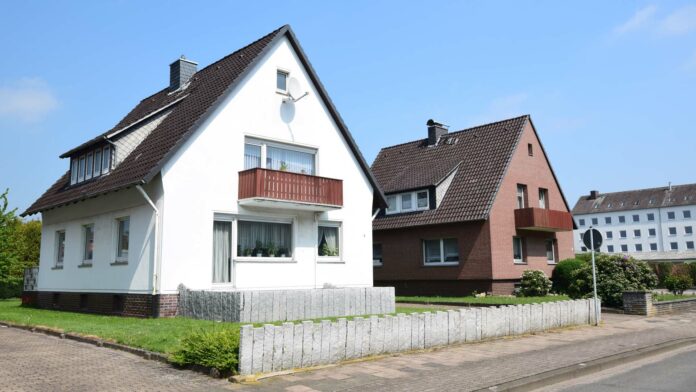Key Highlights
- German housing market well-positioned to weather pandemic and beyond
- Single- and two-family homes alive and well in Hamburg area
German Employment More Resilient than Other European Countries
According to Bloomberg, German economic and employment conditions are more resilient that those in other European countries.
Bloom Economics anticipates that Germany’s unemployment rate will fall to 4.2% in Q4 2021 and to 4% by the end of 2022 due to the country’s greater reliance on manufacturing.
Traditional Estates Blended with Modern Taste
It’s not unusual to find an estate property that includes three houses built with traditionally fired brick, regionally reed-thatched roofs, double-height ceilings, en-suite baths, an equestrian area with living quarters for four people and five horses, fully equipped outdoor kitchens, and a 43-by-16 foot lap pool all contained on seven acres just outside of Hamburg.
If you and/or your clients are interested in such an estate located in the metropolitan area of Hamburg, satisfy your curiosity sooner rather than later. This Lower Saxony metro area is very popular with international tourists and prospective homebuyers.
Market Overview
The overall German housing market saw single-family homes and existing apartments rise roughly 65% and 100% respectively, according to Deutsche Bank’s 2020 market outlook report. (Germany’s housing market went into a deep slide prior to 2018.)
Daniel Ritter, an executive partner with Von Poll Immobilien, a brokerage network headquartered in Hamburg, said, “…prices for single- and two-family houses have climbed by around 5 to 6% annually since 2018, and for condominiums, even by about 10 – 12% annually.
Supply and Demand Imbalances Increasing Prices
Supply in Hamburg’s suburbs has fallen by more than half in Hamburg’s suburbs while demand exceeded pre-pandemic levels in the second half of 2020. The result? Increasing price levels.
According to Janina Stuwe, a Hamburg branch manager for Von Poll Immobilien, homes in Hamburg range in prices from $300,000 to $12.1M while an average single-family home in a “nice” location on the Elbe or Alster rivers runs in the neighborhood of $1.2M – $1.8M.
Stuwe said, “Properties on waterfront locations (on the North Sea) are particularly in demand and can be found in the higher price segment…”
Like elsewhere all over the world, since the pandemic, city center residents have been seeking more space indoors and outdoors and moving to the outward “fringes.”
Who Is Buying in Hamburg Are
Locals have been the primary homebuyers in the Hamburg metro area since the onset of the pandemic due to travel restrictions and quarantine regulations.
Now, buyers from China and the US, as well as returning expatriates, are driving the international buyers. There are no restrictions on foreigners buying property in Germany. Notaries handle all sales so hiring a lawyer is not necessary.
Transfer taxes as well as real estate commissions vary by state in Germany. Cash purchases are much preferred as obtaining a mortgage from German banks is, at best, difficult.
Thanks to The New York Times and Bloomberg Economics.
URGENT: 2021 Results Released. New FREE On-Line Web Event Reveals 17 Surprising Secrets Of The Top 100 Millionaire Agents. Get Your FREE Spot For The On-Line Webinar Now. When You Attend This Event You Will Have A Sense Of Relief Knowing You Can FINALLY Laugh At Your Money Worries – If You Follow This Simple Plan. Learn How To Generate 100’s of Motivated Leads Without Coming Off As A Pushy Salesperson and Losing Your Soul. Learn Now How To Become One of the 1000s of Agents Making HUGE Money NOW Who Never Thought They Could.
P.S. Limited Space Available. 235 Spots Left.

























